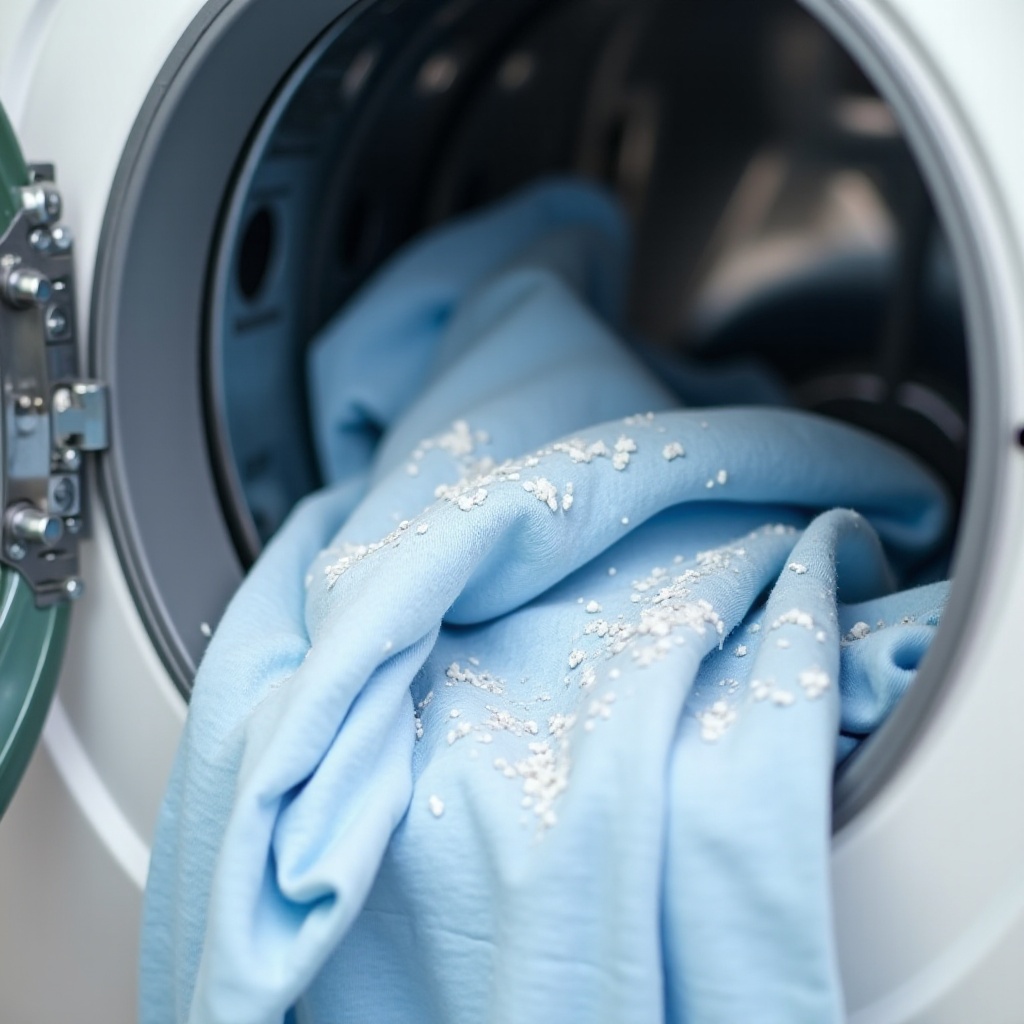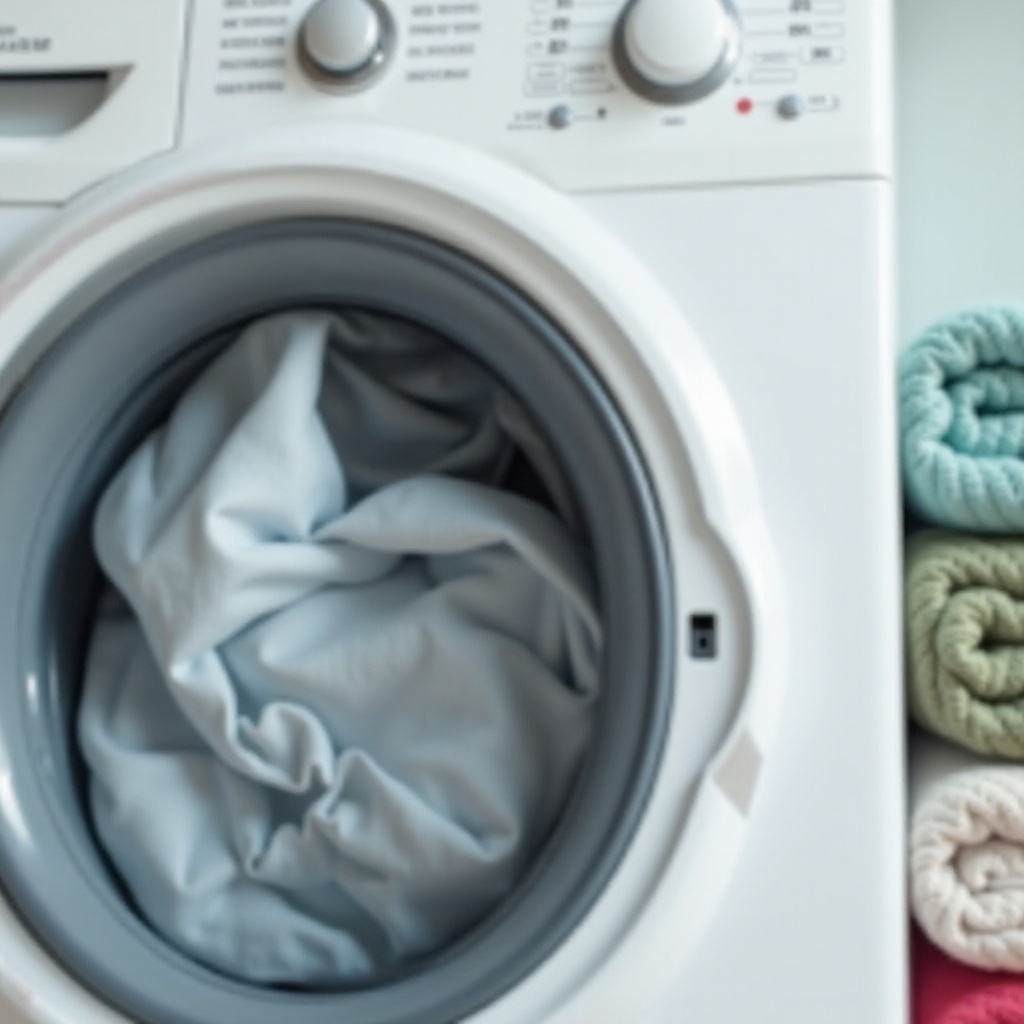Introduction
Having freshly laundered clothes come out of the washer with white residue can be frustrating. This common issue affects many households, and it’s essential to understand why it happens and how to prevent it. The white residue left on clothes can come from various sources, including detergent, hard water, and improper washer maintenance. In this article, we will explore the causes, identify solutions, and provide preventive measures to ensure your laundry remains spotless.

Causes of White Residue on Clothes
Understanding the causes of white residue on clothes can help you address the issue effectively. Here are the primary culprits:
Hard Water Deposits
When your water supply contains high levels of minerals like calcium and magnesium, it is referred to as hard water. These minerals can combine with detergent to create a soapy film that adheres to your clothes, leaving them with a white residue.
Excessive Detergent Use
More detergent doesn't necessarily mean cleaner clothes. Using too much detergent can lead to improper rinsing, resulting in leftover soap on your garments. The excess detergent doesn't fully dissolve in water and ends up clinging to fabrics.
Wrong Detergent Type
The type of detergent you use matters. High-efficiency (HE) washers require HE detergents, which are formulated to produce fewer suds. Using regular detergent in an HE washer can cause oversudsing and inadequate rinsing, leading to residue.
Overloading the Washer
Packing too many clothes into the washer restricts water flow and prevents detergent from dispersing evenly. This can result in some clothes not getting properly rinsed, leaving behind residue.
To determine the best solution, it helps to diagnose the specific cause in your situation.
Diagnosing the Issue
Before jumping into solutions, it's critical to diagnose what's causing the white residue. Here are some steps to help identify the problem:
Inspecting Your Water Quality
Test your water for hardness using a water hardness test kit. If your water is hard, a water softener might be necessary to prevent mineral deposits.
Checking Detergent Measurements
Review the detergent package for proper measuring instructions. If you find yourself using more detergent than recommended, consider reducing the amount. Over time, this small change can make a significant difference.
Analyzing Wash Cycles and Settings
Evaluate your washer's settings. Are you using the correct cycle for your load? Some cycles might not be as effective in rinsing out detergent, particularly with larger loads or heavily soiled items. Adjusting the settings can improve residue removal.
Once you've identified the potential causes, you can begin to implement solutions.
Remedies for White Residue
Now that you have a clearer understanding of what might be causing the residue, let's explore some practical remedies to address the problem.
Using HE (High Efficiency) Detergents
Switch to HE detergents if you own an HE washer. These detergents are specially formulated to work with low-water levels, creating fewer suds and ensuring thorough rinsing.
Running a Double Rinse Cycle
Adding an extra rinse cycle can help remove any remaining detergent or minerals. This method is particularly useful if you have hard water or tend to use more detergent than necessary.
Adding a Water Softener
Installing a water softener can drastically reduce the levels of calcium and magnesium in your water supply, preventing hard water deposits on your clothes. If installing a water softener is not an option, you can use water softening additives in each wash.
Cleaning Washer Drum and Filters
Regularly cleaning your washer drum and filters can prevent buildup that contributes to residue. Run a cleaning cycle with commercial washer cleaner or a mix of vinegar and baking soda monthly to keep your washer in top condition.
By implementing these remedies, you can significantly reduce or eliminate the issue of white residue on your clothes.
Preventive Measures
Besides tackling the immediate issue, it's wise to adopt preventive measures to avoid future residue problems.
Regular Maintenance of the Washer
Routine maintenance is crucial. Clean your washer drum, dispensers, and filters regularly. Monthly cleaning cycles will help maintain your washer's efficiency and prevent buildup.
Optimal Load Size
Avoid overloading your washer. Stick to recommended load sizes to ensure adequate water flow and detergent distribution. Proper loading allows clothes to move freely and be thoroughly rinsed.
Adequate Detergent Use
Always use the appropriate amount of detergent for your load size and water hardness. Refer to the detergent manufacturer's instructions and make adjustments as needed to avoid excess residue.
By incorporating these preventive measures into your laundry routine, you can maintain cleaner clothes and a more efficient washer.

When to Call a Professional
While most residue issues can be resolved with the above steps, there are times when professional help is needed.
Persistent Issues Despite Troubleshooting
If your washer continues to leave white residue on clothes despite your best efforts, it may be time to consult a professional. There could be underlying mechanical problems that need repair.
Warranty and Maintenance Check
If your washer is still under warranty, contact the manufacturer for support. They may offer maintenance services or provide specific solutions for your model.

Conclusion
White residue on clothes is a common issue that can usually be resolved with a few adjustments to your laundry routine and proper washer maintenance. By understanding the causes, diagnosing the problem, and implementing effective remedies and preventive measures, you can enjoy spotless, residue-free laundry.
Frequently Asked Questions
How often should I clean my washer to prevent residue?
It's recommended to clean your washer drum, dispensers, and filters at least once a month to prevent residue buildup and maintain efficiency.
Can fabric softener contribute to white residue on clothes?
Yes, fabric softeners can sometimes leave a residue, especially if used excessively or combined with certain detergents. Using the appropriate amount and type can help reduce this issue.
Is white residue harmful to clothes and skin?
White residue from detergents and hard water deposits can be irritating to sensitive skin and may affect the appearance and texture of clothes. Ensuring thorough rinsing can help prevent these problems.
